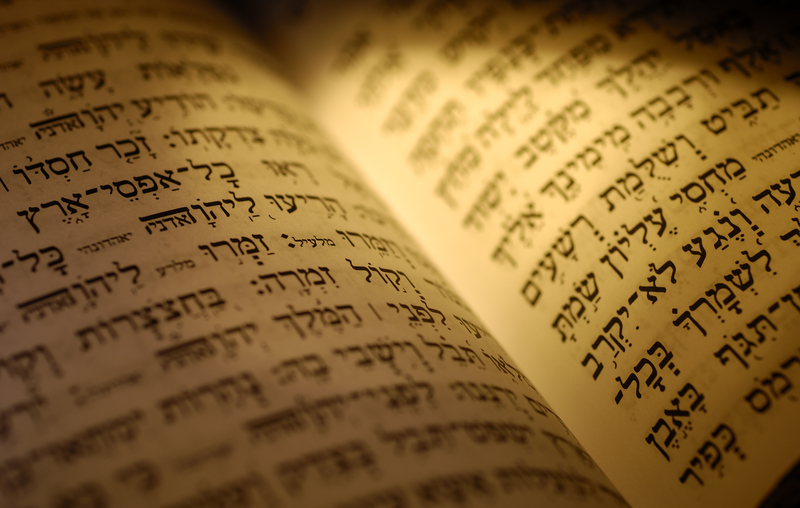
Children Are Not Dependant on the Chamber of Merit
It is commonly understood that both Yishak and Rivka were more than familiar with the Talmudic dictum (MK 28) - חיי בני ומזוני לא בזכותא תליא מילתא אלא במזלא תליא מילתא - This is usually translated as "Life, children and sustenance are not dependent on merit - rather the matter is dependent on planetary influence." The commentators grapple with this interpretation as it clearly contradicts the conclusion found in other Talmudic teachings especially that found in the last chapter (156) of tractate Shabbat.
The Zohar in many places explains this rabbinic teaching in a more mystical manner. It can be elucidated as follows - Life, children and sustenance are not determined in the spiritual chamber called היכל זכות - or the chamber of merit - but rather in elevated sources which are rooted in the upper and lower מזל- This elucidation will help grant us a proper understanding of the early verses of our parasha - whereby we are told of the prayers of יצחק and רבקה for children. We also hope to explain the related topic of the spiritual roots of the דודאים often translated as mandrakes and their role as a biblical fertility inducing agent.
The Chamber of Zekhut
The Zohar teaches that there are seven היכלות that exist in the second highest spiritual world of Beriah - In this world which stands beneath that of אצילות there is angelic activity which is activated by the actions of "man" below. The morning תפילות finds one passing through these היכלות - Starting with יוצא אור of שחרית we begin to ascend spiritually higher through the היכלות - If one reads through this section of the prayers - one will notice a symphony of angelic beings aroused to praise their Creator.
The Zohar teaches that in the היכל זכות - which is the fourth היכל there exists the spiritual roots of all the בתי דינים that exist here below - Furthermore - It is there - that the celestial beings gather at the behest of the Creator to initiate the judgement of man. Armed with this knowledge - it behooves us to consider - that as we pass through this chamber and chant המחדש בטובו בכל יום מעשה בראשית - It is here that we can influence the angelic beings of היכל זכות who serve on the great celestial Sanhedrin.
If one leads them at that point in the prayer - chanting the words with the proper כוונות - surely then - when the time of judgement arrives - these members of the celestial בית דין - will recognize that same person as their admirable human prayer conductor. Hopefully at worst case offering him then - at least a mitigated ruling concerning any judgements in his life.
The Talmud teaches however that children are not one of the items ruled upon here in the בתי דין of the היכל זכות - but rather it emanates from an elevated place of the מזלות - The Zohar (1:43) similarly rules כל דינין דעלמא מהאי היכלא נפקי - All judgements of the world emanate from this chamber - בר תלת בני חיי ומזוני - with the exception of children life and sustenance. For these we need to look upwards from here towards the היכל אהבה - the chamber above Zekhut. Only from there can we begin to procure a prayer for children from the much higher place of the מזלות -
The Dudaim and the Chamber of Love
As one continues his ascent beyond the blessing of יוצר המאורות - he finds himself in the fifth chamber called היכל אהבה - The Zohar teaches that here - there are two forces - that are male and female. Positive actions by man below cause forces called דודאים to unite - These are considered lovers or the דודאים from the root דוד - lover - that have the כח to arouse elevated levels up and into the higher world of אצילות to bring forth children. This is the secret of the verse in שיר השירים ז:יד - that the דודאים give off a ריח - The תפלה associated with this chamber begins אהבת עולם אהבתנו - It is here that the seeds of love between ה׳ and Israel will be realized.
The verses in this berakha display how it is through the study of Torah - that דודאים unite to give forth the ריח - The verse that precedes the giving off of the ריח of the דודאים references the work of the scholars who are compared to the vine. It discusses the stages of the ripening of the grape - (budding flowering fruiting) symbolizing the progress of the developing Torah scholar. It is here in this chamber that scholars arouse the elevated unity - as the verse concludes שם אתן את דודי לך - Here we can understand both a biblical verse and Talmudic teaching.
The Torah verse וילך ראובן בימי קציר חטים וימצא דודאים בשדה - Reuven found the דודאים during the wheat harvest - of which R. Alshikh notes is a reference to שבועות - hinting towards the relationship between the דודאים and the fragrant learning of Torah. The Talmud rules (TJ Shabbat 6:2 8b) that it is forbidden to recite biblical verses when uprooting the דודאים - no doubt - to reflect a rule that the act of uprooting דודאים cannot coexist with the reciting of Torah. Parenthetically Ramban comments that Reuven did not uproot the plant - but only brought his mother the fruit of the plant.
The Scent of the Dudaim Ascends
The berakha that precedes the שמע describes our desire and appreciation of Torah learning - it ends with the love Hashem has for Israel. Torah must preempt the upper unity reflected in the שמע ישראל - According to the סידור הרש״ש one must meditate at the time of its recital - on the unity of the two upper grades within the world of אצילות - These are known as אבא ואמה - or in the scheme that depicts the grades of אצילות in terms of the letters of הויה - it is the unity of the י׳ with the upper ה׳ - R. HaAri teaches that these grades have their respective roots in the upper tip of the יוד known as the grade of אריך אנפין - This spiritual channel is said anthropomorphically to depict 13 middot or י״ג תיקוני תיקנא - While אבא has its roots in the 8th middah called נצור חסד - the grade of אמה - is rooted in ונקה - With this introduction we can begin to appreciate the teaching of R. HaAri (LT - Toledot) that both יצחק and רבקה had to direct their prayers towards the Light of the Creator revealed within these grades called the upper and lower מזלות - or the 8th and 13th מדות - He teaches that the ריח of the דודאים is numerically and spiritually equal with the unity of these upper grades.
The scholar initiates the unity - emits this spiritual fragrance of the דודאים - and according to R. HaAri sweetens the severities and allows the upper unity to take place. The Torah teaches that the words used in the prayer of יצחק is ויעתר - The Talmud (Suk 14) teaches that the prayers of the righteous are compared to an עתר - a pitch fork in that it turns over the celestial disposition from one of severity to that of a fertility friendly one of mercy.
The Wheat Harvest
We mentioned above that the matter of children is תליא במזלא - This is not to be confused with the influence of the planetary bodies - which exists at the bottom of the totem pole of heavenly influence - but rather from a much more elevated spiritual level. This level called כתר or אריך אנפין and is the central focus of שבועות - It is the place to where the ריח of Torah ascends. It appears that the דודי below is he who is found in the Study Hall - being fruitful in advancing Torah novella.
The Torah scholar is associated throughout the words of our Sages with the wheat harvest and Shavuot. The Ari mentions that along with the word נכח - as in לנכח אשתו - the word מזלא - used by Rava when expounding the Talmudic dictum noted above is numerically 78. We know that it is no coincidence that the קרבן brought on שבועות or the holiday associated with Torah is לחם- also numerically 78. This is the "food" of the Torah scholar. As we learn פת ומלח he should consume.
If he desires to be a scholar uniting the דודאים and emitting the ריח he can arouse the upper unity bringing to the world בני חיי ומזוני - The Torah uses the expression עתר or pitch fork in detailing the type of prayer of Yishak. His (their) prayer was a tool to arouse the grain. We know that לחם is associated with the three הויות or 26 x 3 - It represents the essential part of the force called חב״ד - that is expanded from the Mazalot to unite the upper י׳ with the upper ה׳. R. HaAri writes that these three - children life and sustenance which are rooted in the Mazalot extend first to the חב״ד prior to the יסודות או״א - Children are associated with דעת - Life with בינה - and Sustenance (bread) with חכמה - Hence we can begin to understand why לחם is an essential ingredient when bringing forth children via the Torah Scholar.
In order for the דודאים to function it must occur during the season (שבועות) of the wheat growth. The Level of דעת remains exclusively טוב when attached to חכמה. However - if unattached it opens up itself to רע - in the secret of עץ הדעת טוב ורע - In order to remain in a holy place the דודאים and theריח it gives off must be associated to the לחם or שבועות or the wheat season.
At first I assumed that this was the reason why Yitshak had a child עשו that had been exposed toרע - Maybe Yitshak had prayed for children from the level of דעת without its attachment to לחם or חכמה - I then realized my error - and that יצחק and רבקה had indeed prayed properly towards דעת with חכמה - לחם in mind. The verse reads ויעתר - his prayer for children דעת - was associated with an עתר - a tool or spiritual pitch fork - to stir the לחם - or grain. The birth of עשו was apparently not due to this.
Our Rabbi's teach that it was יששכר - the prototypical model of Torah who in a round about way is a product of theדודאים -found by ראובן who was conceived specifically on the night of Shavuot. He understood his role as a לימודי ה׳ - and associated himself by praying for the sustenanceלחם - of his compatriot Zevulun.








